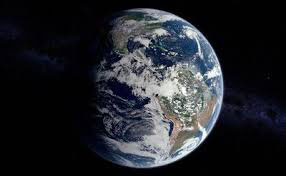Column: At the world’s edge

Feb 13, 2019
When asked about Kashmir, most Americans will likely be reminded of an expensive coat. To get this out of the way, yes. Cashmere wool, the material used to create those comfy but pricey sweaters, comes from this particular region of Asia.
In the 17th century, the Indian Mughal emperor Jahangir said, “If there is paradise on earth, it is this, it is this, it is this.” He wasn’t alone in this opinion. Straddling the northern Indian plane, nestled halfway into the Himalayan mountains, is the historical state of Jammu and Kashmir. With its snow-capped mountains, green valleys and clear skies, it was renowned for its seemingly ethereal beauty.
Yet, today, it is known for a very different reason. If there is to be a nuclear war somewhere in the world, the casus belli will likely be this land of watchtowers and barbed wire.
This is because, of course, colonialism. When the British conquered the Indian subcontinent, they found it expedient to rely upon local indigenous rulers to govern more remote areas, where the British found it difficult to exert direct influence. These ‘princely states’ would eventually be compelled to choose between peaceful integration, or invasion.
When the British left India, they decided, with the support of the Muslim League party, to partition the subcontinent on religious lines. The predominantly Muslim regions of India (modern-day Pakistan and Bangladesh) were to become the Islamic Republic of Pakistan, with the remainder becoming the modern secular republic of India. The Princely states were compelled to choose between these two sides, subsuming to one government or the other.
Kashmir is a unique case because it did not fit into this strict religious dichotomy. The ruling dynasty of Kashmir were Hindu, yet the population was mostly Muslim. The Hindu rulers governed with the support of the state’s Hindu religious minority, much to the chagrin of the Kashmiri Muslims, who held a majority of two-to-one.
Pakistan, assuming Kashmir would become its sixth province, became concerned when the Hindu ruler, Maharaja Hari Singh, wished his state to remain independent. When Muslim militias invaded the state from Pakistan, Hari Singh officially declared his intention to cede his state to India, in order to gain military support from the government in New Delhi. For the next year, the Indian and Pakistani armies clashed violently over the state, ending ultimately in another partition.
After a second war in the ‘60s, the front lines remained almost unchanged. Most of the state lies in India, while about a fourth is behind the Pakistani front. Both governments claim all of Kashmir as an integral part of their territory. In addition, there are allegations of discrimination against Muslims by the Indian army, and against Hindus by the Pakistani authorities, leading to further tension.
Since the ‘90s, both countries maintain active nuclear arsenals. Skirmishes, sometimes bloody, have occurred on the “border,” which is the most heavily fortified in Asia after the Korean DMZ. Even China took a piece of territory, mostly on the uninhabited Tibetan plateau for itself. To solidify its alliance with Pakistan (who provides China with valuable access to the Persian Gulf,) China supports Pakistan’s claim to Kashmir.
With the severity of the dispute, most international organizations work to ease tensions between India and Pakistan, without regard to the wishes of the Kashmiri people (many of whom wish for independence from both countries). It is not certain whether Kashmir will ever be reunited. But what is certain is that it will not be reunified by interstate conflict, since there are no winners in a nuclear war.












Dominic • Feb 14, 2019 at 9:22 pm
Kashmir is amazingly interesting and definitely shows the differences between India and Pakistan. The rising tensions between muslims and christians is shown most prominently in Kashmir with its three segregated regions that divide the hindu, muslim, and buddhist populations. One can see the recent riots and see the terrifying situation of rising hindu and islamic populism. I can’t believe that two nuclear armed powers allowed war to boil over. The whole situation seems stupid to me in the same regard that Greece and Macedonia fought over the word Macedonia. I used to find India to be the most respectable, yet the BJP’s domination has caused alarm with their frank indifference to hindu extremists. I really wish more Americans paid attention to the two most important countries for American security in the next century.